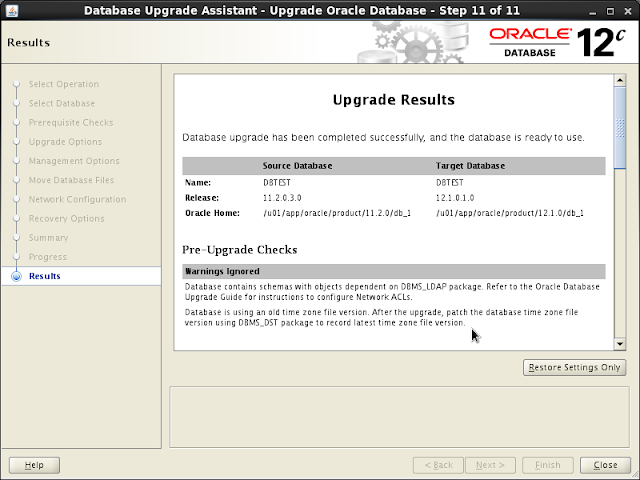However, it was easy to reset the password following these steps:
1) Stop OMS (leaving the Admin Server up)
2) Modify SYSMAN password
3) Stop all OMS components
4) Start OMS
5) Login to Oracle EMCC-12c with the new password
1) Stop OMS (leaving the Admin Server up)
Stop the OMS without "-all" as shown below:
[oracle@emcc bin]$ ./emctl stop oms
Oracle Enterprise Manager Cloud Control 12c Release 2
Copyright (c) 1996, 2012 Oracle Corporation. All rights reserved.
Stopping WebTier...
WebTier Successfully Stopped
Stopping Oracle Management Server...
Oracle Management Server Successfully Stopped
Oracle Management Server is Down
[oracle@emcc bin]$
2) Modify SYSMAN password
[oracle@emcc bin]$
[oracle@emcc bin]$ ./emctl config oms -change_repos_pwd -use_sys_pwd -sys_pwd XXXXX -new_pwd mynewpassword
Oracle Enterprise Manager Cloud Control 12c Release 2
Copyright (c) 1996, 2012 Oracle Corporation. All rights reserved.
Changing passwords in backend ...
Passwords changed in backend successfully.
Updating repository password in Credential Store...
Successfully updated Repository password in Credential Store.
Restart all the OMSs using 'emctl stop oms -all' and 'emctl start oms'.
Successfully changed repository password.
[oracle@emcc bin]$
3) Stop all OMS components
[oracle@emcc bin]$ ./emctl stop oms -all
Oracle Enterprise Manager Cloud Control 12c Release 2
Copyright (c) 1996, 2012 Oracle Corporation. All rights reserved.
Stopping WebTier...
WebTier Successfully Stopped
Stopping Oracle Management Server...
Oracle Management Server Already Stopped
AdminServer Successfully Stopped
Oracle Management Server is Down
[oracle@emcc bin]$
[oracle@emcc bin]$
4) Start OMS
[oracle@emcc bin]$ ./emctl start oms
Oracle Enterprise Manager Cloud Control 12c Release 2
Copyright (c) 1996, 2012 Oracle Corporation. All rights reserved.
Starting Oracle Management Server...
Starting WebTier...
WebTier Successfully Started
Oracle Management Server Successfully Started
Oracle Management Server is Up
[oracle@emcc bin]$
5) Login to EMCC-12c
I was able to login to the EMCC-12c console with the new password without any issues.
For more information refer to MOS - 1365930.1


























